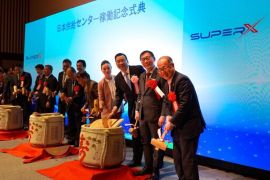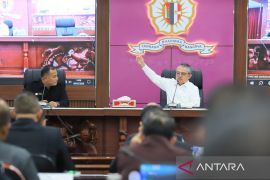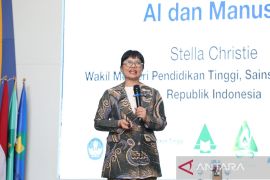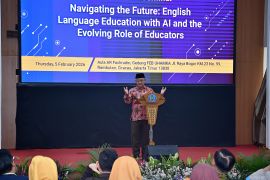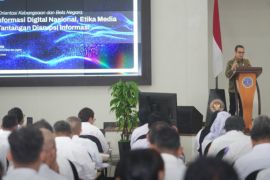Amid the rapid development of artificial intelligence (AI) globally, the Ministry of Communication and Digital Affairs is preparing a national AI road map that is scheduled to be completed in three months.
Though this initiative could be praised as an effort to build a strategic foundation, there are concerns that cannot be ignored.
In particular, the road map should not become a normative document that solely focuses on literacy, regulation, and ethics, but forgets the main core that would drive this technology—industrialization and commercialization.
Without focusing on building a concrete demand-supply ecosystem, the AI road map will not help Indonesia to reach its goals.
Aspects that regulate literacy, regulation, and ethics are indeed important, but without concretely touching upon industrialization and commercialization, the road map will be at risk of becoming an elitist document that does not address real needs.
Amid the global euphoria regarding the sophistication of AI, it is essential to devise policies that support the growth of the local AI industry, and not just focus on creating talents for global technology giants.
Indonesia has AI talents to be reckoned with. Many young Indonesians have joined big companies such as Google, Meta, and TikTok.
However, within the country, local AI products seem to be sidelined. The root of the problem is not a lack of creativity or technical expertise, but the absence of systemic support for the growth of the AI industry.
The main hindrances to AI industry growth are: lack of access to national data, financing, and the absence of incentives for adoption from local agencies.
Chair of the AI committee of the National Information and Communication Technology Business Association (APTIKNAS) Karim Taslim has suggested adopting a more strategic approach by adding the industrialization and commercialization pillars in the national AI road map.
Related news: Indonesia advocates for ethical AI: Minister
The suggestion aims to change the paradigm of AI development in Indonesia.
One of the most concrete suggestions is regarding the state’s role as the first buyer of local AI products.
When the state provides opportunities for local solutions to be used in strategic national projects, it can create a healthy domestic market and encourage the business continuity of local developers.
APTIKNAS has shown that this approach is not just mere rhetoric. Since 2020, they have rolled out the AI Incubation Camp and Indonesia AI Innovation Challenge programs with the support of the Ministry of Communication and Informatics and the Ministry of Tourism and Creative Economy.
These programs have resulted in several startups that are capable of competing at the global level. One of them is LUDESC, which has developed an IoT-based lung disease screening system.
Related news: Indonesia's MSMEs urged to adopt AI for export growth
There are also AeroBuddy, with its AI analytics for the aviation industry, and MersifLab, with its virtual laboratory.
However, this extraordinary potential will not translate into a big leap without serious support from the government for AI industrialization.
Industrial ecosystem
Ideally, this support should not solely be in the form of incubation and technical training. There is an urgent need to create a coaching ecosystem that trains startup founders.
AI, on its non-technical side, includes market validation, business strategy, managerial capability, leadership, and financial management.
Many AI startup founders in Indonesia are very strong in technology but weak in building sustainable organizations.
There are also some single founders, working alone without a team, who end up failing because they do not have the skills to sell and develop their businesses.
Related news: Indonesia ropes in Google to train teachers in coding, AI
Some of the important elements in the road map proposed by APTIKNAS are market access and protection for domestic products.
Digital diplomacy needs to be directed to open up opportunities for Indonesian AI exports, especially to ASEAN and African countries.
Domestically, protection for local products through policies such as the domestic component level (TKDN) requirement for AI is necessary.
This does not mean that Indonesia should close itself off from global technology; rather, it must ensure that it is not just a consumer or provider of cheap labor for foreign AI industries.
China is a concrete example of how a state can play an active role in building a strong AI industry.
The Chinese government is providing extraordinary support to local startups such as DeepSeek so that they can penetrate the global market.
Indonesia can learn from this, as the country has a unique ecosystem. However, the main requirement is that the state must be present as the primary enabler of AI industrialization.
The big challenge ahead is not lack of talent, but lack of strategy. If the national AI road map does not touch on the aspects of industrialization and commercialization, Indonesia will only produce great graduates and innovators who end up working for foreign ecosystems.
It is time for Indonesia to realize that AI is not just a technological advance, but it is also linked to geopolitics, data sovereignty, and economic competitiveness.
A clear and realistic view of the future of AI in Indonesia is needed. The state must be present as a strategic partner in building a national AI industry that is resilient, independent, and brings prosperity to its own people.
Translator: Hanni Sofia, Raka Adji
Editor: Rahmad Nasution
Copyright © ANTARA 2025

